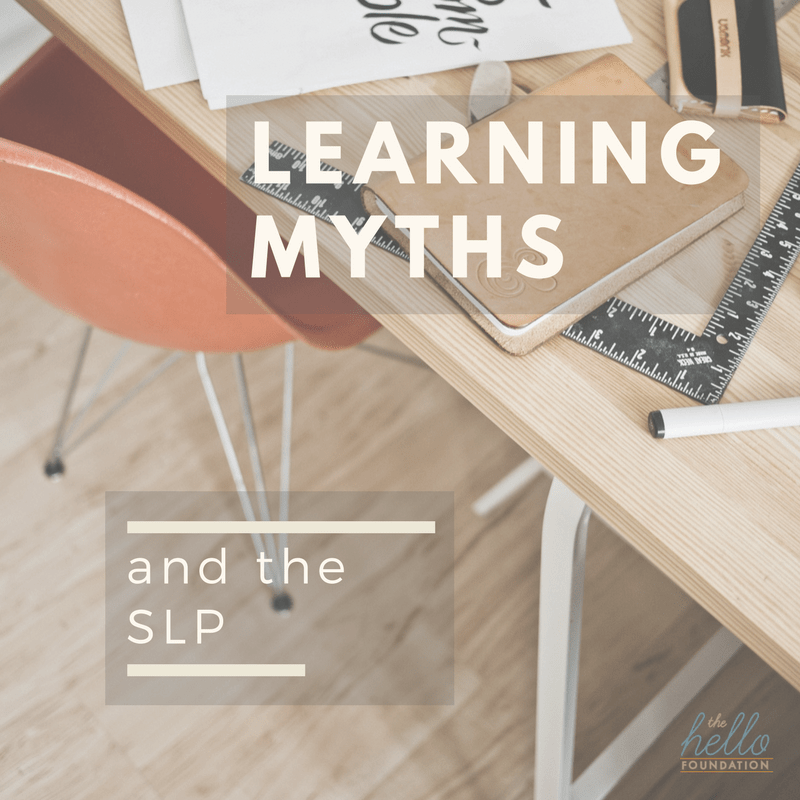We at Hello have been fascinated by a recent article by NPR that reveals some myths that we erroneously believe are what good learning looks like. You can even take a quiz to see how you do!
So, go take the quiz and then come back. Don’t worry, we’ll still be here. Then let’s go through each question – we came up with a takeaway for each one to keep in mind during treatment.

(Questions and answers are taken from the NPR article)
Question #1: True or false? When it comes to learning, metacognition (e.g., thinking about thinking) can be just as important as intelligence.
Answer: True. Research on growth mindset by Carol Dweck and others shows that people’s beliefs about the nature of intelligence affect their level of effort and in turn their performance.
SLP Takeaway: Use think alouds to discuss vocabulary and literary pieces (“When I see the word “mechanical”, I see the word “mechanic” in it, so I wonder if it has to do with that”).
Question #2 : What is the best way to learn from some text?
Answer: Explain key ideas of the text to yourself while reading. Restating the text in your own words is another form of “active learning.”
SLP Takeaway: Have students retell important information from a story or written piece using their own words. Use sentence starters and models to help with sentence formulation.
Question #3: True or false: Intelligence is fixed at birth.
Answer: False. This false belief is sometimes called “fixed mindset.” In fact there’s plenty of evidence that IQ can increase over time given interventions like preschool or reading to a child.
SLP Takeaway: Be an advocate for high quality service for students. It can make a huge difference in their long-term success both in and out of the classroom.
Question #4: You have a test coming up. What’s the best way to review the material?
Answer: Take an informal quiz based on the material. Quizzes are a form of “active learning” that promotes better recall.
SLP Takeaway: Be sure to mix up sessions with both teaching time and time for them to practice active learning by answering questions and retelling information.
Question #5: To which of the following should you not tailor your learning?
Answer: Learning styles (visual, audio, etc.). The idea that people have different primary learning styles is a myth with no evidence.
SLP Takeaway: This one feels a little strange to us SLPs, as we know our students have difficulty with oral language skills. I’m going to go ahead and say that it is best to give instruction in a variety of modalities, such as visual, hands-on, and with simple language.
Question #6: True or false: Learning should be spaced out over time.
Answer: True. Much research supports the idea that “spaced repetition” helps you retain knowledge over the long term.
SLP Takeaway: Children with language delays probably need this more than anybody. Pre-teach vocabulary and concepts that are going to be taught in class, and give lots of opportunities to practice learning them.
So, how did you do??





